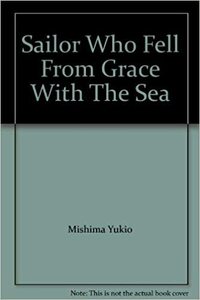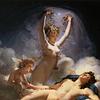Take a photo of a barcode or cover
What a strange book
Unfortunately the writing did not redeem the oddity of the book, maybe this was a translation issue, not sure.
Uncomfy scenes of Noboru watching his mum have sex and also him killing a kitten. And I struggled to determine the point behind all of this. Maybe my own fault but I also didn't really want to think that hard about what it all meant tbh.
I finished the book but if it had been much longer I may have DNFed
Unfortunately the writing did not redeem the oddity of the book, maybe this was a translation issue, not sure.
Uncomfy scenes of Noboru watching his mum have sex and also him killing a kitten. And I struggled to determine the point behind all of this. Maybe my own fault but I also didn't really want to think that hard about what it all meant tbh.
I finished the book but if it had been much longer I may have DNFed
I only read this because I thought it was Claire’s favorite book but upon further discussion Claire had never read it at all and I just read this terrible little book for no reason. This was actually completely uninteresting and I didn’t like it at any point
The writing in the translation is so great it makes me want to learn Japanese just to read the original.
reflective
medium-paced
Loveable characters:
No
Diverse cast of characters:
No
Flaws of characters a main focus:
Yes
dark
emotional
tense
slow-paced
challenging
dark
mysterious
reflective
slow-paced
Plot or Character Driven:
Character
A raw, introspective drama on the degeneration of life, clothed in the most graceful prose you'll ever read.
I saw another reviewer apply Nietzschean theory to Mishima's work, and I found the dichotomy of master vs slave violence to be particularly apt here. Destructive violence, as opposed to creative violence, is born through the emotion of ressentiment, harbored by the "powerless." In the book, Noboru and his friends are boiling with the rage that comes with the confusion of puberty, being the object of domestic abuse, and having one's father humiliated. Masculinity is at the heart of it all. In the face of a kind-hearted yet awkward step dad, the ego of a group of pubescent boys finds an enemy "to insulate itself from culpability," a scapegoat for all of the violent acts they commit that has to be sacrificed to maintain order within the group and bring meaning to their entropic lives.
However, though the kids are seemingly the powerless ones, Ryuji is the person who displays most "slave mentality" traits. This book makes you question social power dynamics, and shows that their overturning is possible any minute.
Mishima's world is cruel, but the narrative does pick its favorites: in the end, it is Ryuji, the meek and awkward sailor, who overpowers his murderers, as his thoughts soar above all else: "Still immersed in his dream, he drank down the tepid tea. It tasted bitter. Glory, as anyone knows, is bitter stuff." He has won over their malice because, in a somehow wholesome scene filled with dramatic irony, he has already accepted death before he realizes he is dying. In this epiphany, he reminded me of Dionysios Solomos' characters and their conquering life when theirs was about to end.
In Mishima's The Sailor who Fell from Grace with the Sea one can observe the towering triumph of the Soul over a cruel yet mystical --- indeed, everything in this book just seems to glow ---illusory physical world.
I saw another reviewer apply Nietzschean theory to Mishima's work, and I found the dichotomy of master vs slave violence to be particularly apt here. Destructive violence, as opposed to creative violence, is born through the emotion of ressentiment, harbored by the "powerless." In the book, Noboru and his friends are boiling with the rage that comes with the confusion of puberty, being the object of domestic abuse, and having one's father humiliated. Masculinity is at the heart of it all. In the face of a kind-hearted yet awkward step dad, the ego of a group of pubescent boys finds an enemy "to insulate itself from culpability," a scapegoat for all of the violent acts they commit that has to be sacrificed to maintain order within the group and bring meaning to their entropic lives.
However, though the kids are seemingly the powerless ones, Ryuji is the person who displays most "slave mentality" traits. This book makes you question social power dynamics, and shows that their overturning is possible any minute.
Mishima's world is cruel, but the narrative does pick its favorites: in the end, it is Ryuji, the meek and awkward sailor, who overpowers his murderers, as his thoughts soar above all else: "Still immersed in his dream, he drank down the tepid tea. It tasted bitter. Glory, as anyone knows, is bitter stuff." He has won over their malice because, in a somehow wholesome scene filled with dramatic irony, he has already accepted death before he realizes he is dying. In this epiphany, he reminded me of Dionysios Solomos' characters and their conquering life when theirs was about to end.
In Mishima's The Sailor who Fell from Grace with the Sea one can observe the towering triumph of the Soul over a cruel yet mystical --- indeed, everything in this book just seems to glow ---illusory physical world.
slow-paced
Plot or Character Driven:
A mix
Strong character development:
No
Loveable characters:
No
Diverse cast of characters:
Complicated
Flaws of characters a main focus:
Yes
I have absolutely no idea if I understand this book as intended or not. The philosophy behind the groups actions and discussions seems somewhat mature and immature at the same time which is to be expected based on their ages. Overall, I am confused but happy with having read it regardless ☺️
☆ 4.5
Accidentally watched the movie on Mishima before reading any of his works, lowkey spoilt it for myself
Accidentally watched the movie on Mishima before reading any of his works, lowkey spoilt it for myself
dark
emotional
reflective
fast-paced
Plot or Character Driven:
A mix
Loveable characters:
No
Diverse cast of characters:
No
Flaws of characters a main focus:
Yes
dark
mysterious
sad
medium-paced
Plot or Character Driven:
Character
Strong character development:
No
Loveable characters:
No
Diverse cast of characters:
No
Flaws of characters a main focus:
Yes




